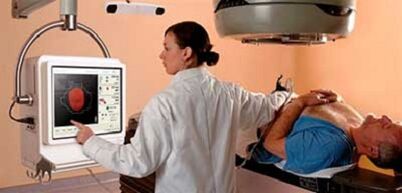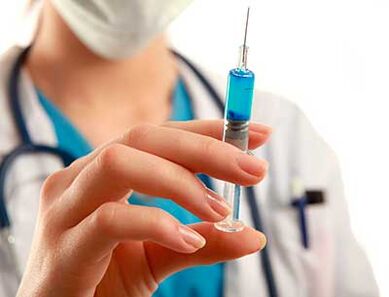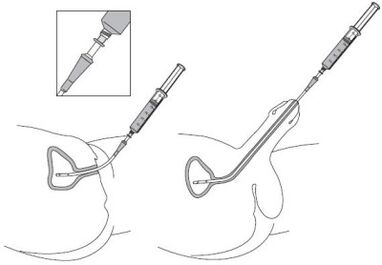In order to prevent inflammatory changes in the tissues of the prostate gland, the urologist often prescribes certain medications to treat the inflammation of the prostate.
Don’t assume that a modern pharmaceutical will help any man with the disease cope with the disease.
The choice of drug depends on many factors, and in order to rapidly restore and prevent the transition of acute prostatitis to chronic form, all therapies should be selected after a thorough examination.
What medications are used to treat prostatitis
Medications are always needed to treat acute prostatitis. Without their use, it is impossible to achieve complete cessation of inflammation and restoration of prostate function.

The man has to go through the whole therapy, the disappearance of the symptoms does not mean the complete recovery.
Therefore, if you stop taking the medication, it will be the main reason for the transition of the prostate gland to a recurrent, i. e. chronic, stage of inflammation.
Drugs are selected based on the data obtained during the study and can be prescribed in complex therapies with herbal and folk remedies.

The physician should take into account the detection of a particular microflora in the smear, the clinical signs and complaints of the patient, and the data obtained during the instrumental examination of the prostate.
Based on this, antibacterial, anti-inflammatory and restorative treatments are chosen.
Depending on the course of the disease, all selected drugs are prescribed in the form of injections and tablets. Sometimes drips are used.
Injectable drugs
Basically, they are prescribed by a urologist during the acute stage of inflammation, and they are most often antibiotics.
Injectable drugs allow the desired therapeutic effect to be achieved quickly, but injections of prostatitis are administered in a hospital setting.
Anesthetic injections can also be used for severe pain.

Pills
They can be used for a long time to treat prostatitis. Tablet drugs include non-steroidal anti-inflammatory drugs, antispasmodics, muscle relaxants.
In case of prostatitis, the use of drugs that improve metabolism is also important.
Recently, bioregulatory peptides have been prescribed to improve prostate cell regeneration.
Instillations
It is the introduction of a therapeutic solution into the urethra with a special mechanism of action.
The introduction of the drug into the urethra ensures the earliest removal of the bacterial flora and allows for faster recovery of the inflamed mucosal layer.

Candles
Another dosage form for the treatment of prostatitis. Prostatitis candles are used as painkillers and anti-inflammatory drugs.
Suppositories can also be replaced by microcycles with drugs that have the effect of improving microcirculation in prostate tissue.
The dosage form used to treat a particular patient can only be decided by a physician.
Some sick men cannot do without injections, others can be cured with tablets. The choice of method of therapy depends on the stage of the disease.
In the chronic stage, tablets are mainly used, but they often need to be drunk for a long time.
The most popular and widely used drugs for prostatitis
In selecting the patient's therapeutic regimen, the urologist will consider all possible contraindications and the susceptibility of the detected pathogens to drugs.
Since acute prostatitis is still a bacterial infection in most cases, treatment accordingly begins with the use of antibacterial drugs.
But this is not limited to this, the doctor also selects other medications that help improve blood circulation, relieve cramps and help cells.
That is, each treatment consists of using multiple drugs at the same time, with different mechanisms of action.
Drugs for bacterial prostatitis
If prostatitis is found to be caused by bacteria, antibiotics should be prescribed.
First, drugs with a broad spectrum of action are chosen, i. e. , those that can be killed by multiple microbes simultaneously.
- Cephalosporins are most often given by injection. The drugs are administered intramuscularly or intravenously for at least 10 days;
- Penicillins are used in the form of specially selected dose tablets;
- Fluoroquinols are used when antibiotics of another group are intolerant. The drug can be used for two weeks.
Treatment of acute prostatitis
In addition to antibacterial drugs, non-steroidal anti-inflammatory drugs and antispasmodics are also needed for prostatitis in the acute stage of the disease.
Under their influence, the inflammation decreases faster and the pain disappears with discomfort.
- Anticonvulsants are available in both injections and tablets. They are administered intramuscularly in hospital in case of pain;
- Non-steroidal anti-inflammatory drugs can also be used in injections and tablets. If a man also has stomach ailments, it is best to use injectable medications as this group of medications negatively affects the mucous membranes of the organ. Injections or suppositories are most commonly used today.
Treatment of viral prostatitis
Viral prostatitis is rare. In addition to the effect of the virus on the development of the disease, the reduced immunity of the man plays a role in this case.
The pathogens of this form of the disease include herpes simplex virus, influenza virus, human papillomavirus infection.
In addition to anti-inflammatory and microcirculatory enhancers, your doctor will prescribe antiviral medications to treat viral prostatitis.
You also need foundations that increase immunity.
Medicines to relieve muscle cramps
In the treatment of prostatitis, muscle relaxants are needed to reduce the tone of tense muscles. This reduces pain and makes it easier to urinate.
Medicines that improve blood circulation
In any prostatitis, circulatory disorders are always detected, leading to stagnation and not allowing the tissues of the organ to recover.
Therefore, complex therapy should use drugs that improve blood circulation.
To normalize the filling of the blood vessels, a preparation with horse chestnut fruit extract is used.
Other groups of drugs
As already mentioned, the choice of treatment by the physician is based on the many data revealed during the study. Therefore, the treatment regimen for patients with prostatitis may differ significantly from that for another patient.
In the case of prostatitis, immunomodulators are often prescribed, which speed up the functioning of the immune system.
In the chronic stage of the disease, an injectable drug is often used, which strengthens the blood vessels, improves cell regeneration and has a positive effect on urination.
In the treatment of prostatitis, this drug is used repeatedly in 5-6 injections.
Biological supplements are popular in tablet form.
These compositions contain a complex of trace elements that have a positive effect on prostate tissue.
In summary
Treating prostatitis cannot be an independent choice. You don’t just go to the pharmacy and you can choose medications to restore your prostate function.
This approach will lead to a transition between acute and chronic prostatitis and will be one of the causes of sexual dysfunction in the future.
An examination by a doctor allows the cause of the disease to be accurately identified and eliminated with the help of a specific group of drugs.
During medication, your urologist will constantly monitor you for any changes and may adjust your medication intake to improve the effectiveness of your treatment.
Every man should remember that pain and discomfort when urinating and only at rest are sufficient reasons to go to the hospital.
Timely treatment of prostatitis with medications and drugs will completely rid the patient of many ailments in the future.



























